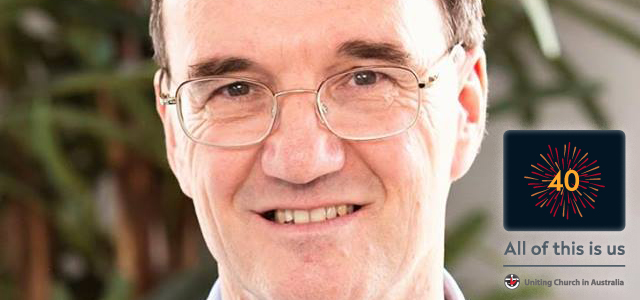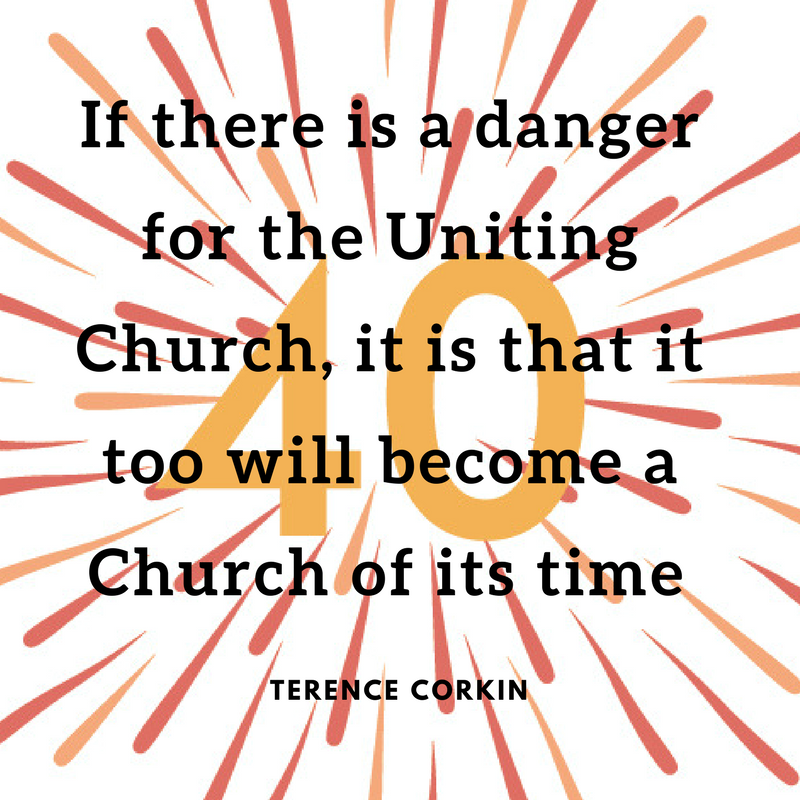To celebrate the Uniting Church in Australia’s 40th anniversary, Terence Corkin notes how things have changed and why that should continue.
On June 22 1977, as a 20 year old, I was privileged to attend the Uniting Church’s Inauguration at the Sydney Town Hall. The next year I was at United Theological College as a candidate for Minister of the Word. How the world and the Church have changed in 40 years!
As I sat in the crowd at the Inauguration, I was struck by the abundance of old men in dark clerical garb that dominated the stage and the proceedings.
There was the occasional woman who made an appearance or a younger male minister to be seen, but not too often. Most of the women on the stage were in the choir that contributed to the very generous collection of old fashioned hymns and music that occupied the airwaves of Sydney Town Hall. I have no memory of an Aboriginal person or someone from a culturally or linguistically diverse (CALD) background participating in the liturgy.
The uniting churches were “of their time”. This is to be expected – the Christian faith is inherently incarnational. Thankfully we are in a different time and the contrast with the opening worship and meeting of the 14th Assembly could not be more striking.
However, the seeds for these transformations were planted in the faithfulness of those uniting churches, way back in 1977. The recognition of women in leadership, commitment to justice, ecumenical and international understandings of what it means to be church, respect for and welcome of the ministry of lay and ordained persons, were not invented after June 1977.
Over 40 years, the Uniting Church has built upon a faithful foundation. Even so, there remain many ways in which the 40-year-old Uniting Church has remained locked in the past. In too many places we worship in ways which are dated or foreign to people who have not been part of church culture (and CALD communities are as much at risk of this as anyone else). Evangelism was not the norm in the Christendom churches of the 1970s and evangelism needs to be embraced far more willingly and effectively in the Uniting Church. Theological education and formation need to be less dependent on the ‘academy’ and one physical location for its delivery. We also need to be more open to mystery, not knowing, and the Holy Spirit.
If there is a danger for the Uniting Church, it is that it too will become a Church of its time. We live in scary times of social and religious conservatism. These times entice the Church to return to views that undermine women in leadership, to hold narrow understandings of evangelism and the gospel, and to be socially conservative and less adventurous.
As the members of the Uniting Church in June 1977 grew the seeds of change for the Church, to became a different Church than the one they inherited; it is my hope that those of us around in the next 40 years will do the same.
Terence Corkin is former General Secretary of the National UCA Assembly














2 thoughts on “We must keep planting the seeds of change”
How many confirmed members were registered in the Uniting Church in June 1977 and how many today ? How does this compare to other main stream denominations over the same period?
Do our ministers of the Word see their settlement as a job rather than a calling?
How has the selection process improved for ministers of the Word to ensure they are assigned to appropriate arms of the church?
Terence Corkin is spot on.
The next thirty years will see us leaving the “messy middle” and become the Church God is calling us to be.
Those of us who celebrated to inauguration are unlikely to be active players when that time arrives.